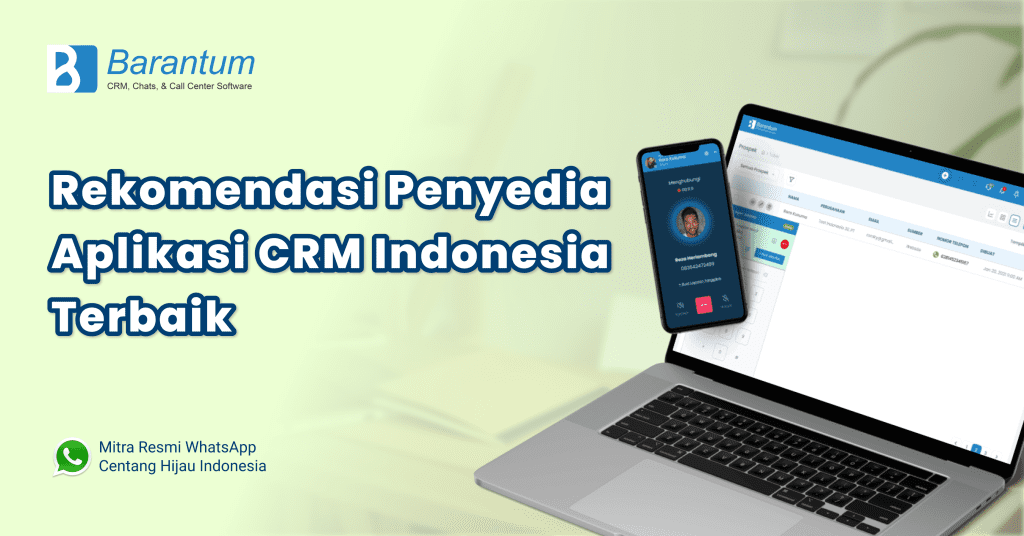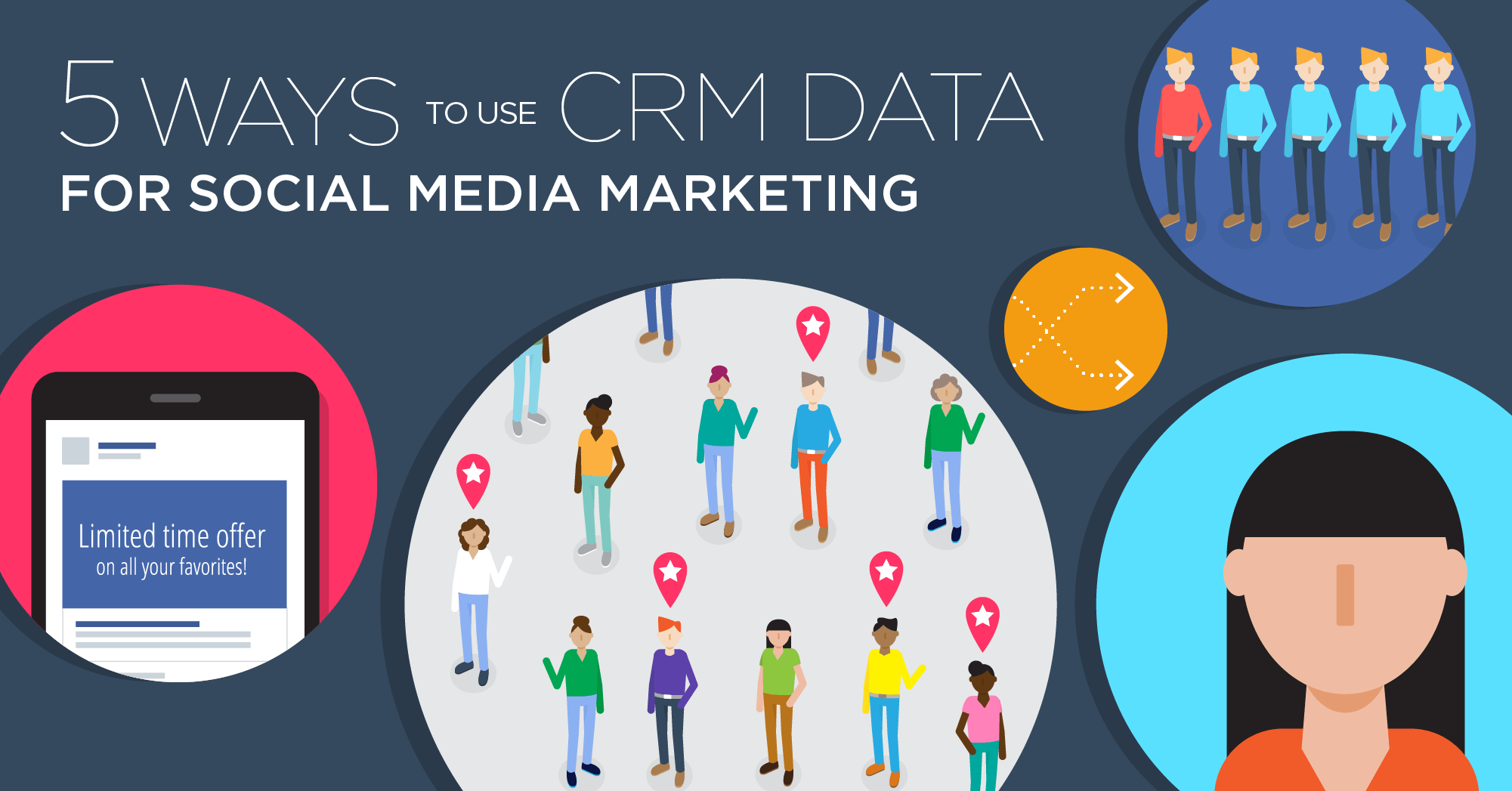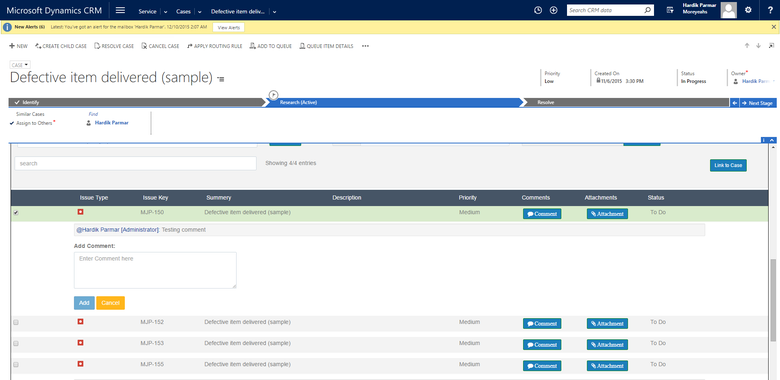Small Business CRM in Indonesia: Your Comprehensive Guide to Growth

Unlocking Growth: The Power of CRM for Indonesian Small Businesses
Indonesia, a vibrant archipelago, is buzzing with entrepreneurial spirit. From bustling city streets to tranquil rural villages, small businesses are the lifeblood of the Indonesian economy. These enterprises, brimming with potential, often face the challenge of managing customer relationships effectively. This is where Customer Relationship Management (CRM) systems come into play. But what exactly is a CRM, and why is it so crucial for small businesses in Indonesia?
A CRM is more than just software; it’s a strategy. It’s a way to organize and analyze all your customer interactions, from initial contact to after-sales support. Think of it as your central hub for everything customer-related. For Indonesian small businesses, a well-implemented CRM can be the difference between surviving and thriving. It can streamline processes, boost sales, enhance customer satisfaction, and ultimately, fuel sustainable growth. The Indonesian market, with its diverse customer base and unique cultural nuances, demands a tailored approach. A CRM can provide that.
Understanding the Indonesian Small Business Landscape
Before diving into the specifics of CRM, let’s consider the Indonesian small business environment. This ecosystem is characterized by:
- Diversity: From traditional warungs (small family-owned businesses) to tech startups, the range is vast.
- Digital Adoption: Internet and mobile penetration are high, creating opportunities for digital marketing and CRM solutions.
- Cultural Nuances: Building trust and personal relationships are crucial in Indonesian business culture.
- Budget Constraints: Small businesses often operate with limited resources, making cost-effectiveness a key consideration.
These factors shape the requirements for a successful CRM implementation in Indonesia. A CRM must be adaptable, culturally sensitive, and, ideally, affordable. It needs to help businesses navigate the complexities of the local market while providing tangible benefits.
Why Your Indonesian Small Business Needs a CRM
Let’s explore the compelling reasons why a CRM is essential for your Indonesian small business. It’s not just about keeping up with the competition; it’s about gaining a strategic advantage.
1. Enhanced Customer Relationship Management
At its core, a CRM helps you build stronger relationships with your customers. It provides a 360-degree view of each customer, including their purchase history, communication logs, preferences, and any support interactions. This allows you to:
- Personalize Interactions: Tailor your marketing messages, sales pitches, and customer service to individual customer needs.
- Improve Communication: Keep track of all interactions, ensuring consistent and timely communication.
- Build Loyalty: Show customers that you remember them and value their business.
2. Streamlined Sales Processes
A CRM can automate and optimize your sales pipeline, from lead generation to closing deals. This results in:
- Lead Management: Track leads, qualify them, and assign them to the appropriate sales representatives.
- Sales Automation: Automate repetitive tasks like sending follow-up emails and scheduling appointments.
- Improved Sales Performance: Gain insights into sales trends, track sales team performance, and identify areas for improvement.
3. Increased Marketing Effectiveness
CRM data can be used to segment your audience, personalize marketing campaigns, and measure the results. This enables you to:
- Targeted Campaigns: Create marketing campaigns that are specifically tailored to different customer segments.
- Improved ROI: Track the performance of your marketing efforts and optimize your campaigns for maximum impact.
- Customer Insights: Understand customer behavior and preferences to refine your marketing strategies.
4. Improved Customer Service
A CRM provides a centralized location for managing customer service interactions, leading to:
- Faster Response Times: Quickly access customer information and resolve issues efficiently.
- Consistent Service: Ensure that all customers receive the same level of service, regardless of who they interact with.
- Increased Customer Satisfaction: Resolve issues promptly and effectively, leading to happier customers.
5. Data-Driven Decision Making
CRM systems provide valuable data and analytics that can help you make informed business decisions. You can track key metrics, identify trends, and gain insights into your business performance. This empowers you to:
- Monitor Key Performance Indicators (KPIs): Track metrics such as sales revenue, customer acquisition cost, and customer lifetime value.
- Identify Opportunities: Discover new market segments, products, or services.
- Make Data-Backed Decisions: Base your business decisions on data rather than guesswork.
Choosing the Right CRM for Your Indonesian Small Business
Selecting the right CRM is crucial. The best CRM for your business will depend on your specific needs, budget, and technical capabilities. Here are some key factors to consider:
1. Features and Functionality
Assess your business requirements and identify the features you need. Consider the following:
- Sales Automation: Lead management, sales pipeline management, and deal tracking.
- Marketing Automation: Email marketing, social media integration, and campaign management.
- Customer Service: Ticketing system, live chat, and knowledge base.
- Reporting and Analytics: Customizable dashboards and reports.
- Integration: Integration with other tools you use, such as email marketing platforms, accounting software, and e-commerce platforms.
2. Ease of Use
Choose a CRM that is easy to learn and use. The simpler the interface, the faster your team will adopt it. Look for a CRM with:
- Intuitive Interface: A user-friendly design that is easy to navigate.
- Customization Options: The ability to customize the CRM to fit your specific needs.
- Training and Support: Access to training materials and customer support.
3. Cost
CRM pricing models vary. Consider your budget and choose a CRM that offers a pricing plan that fits your needs. Be aware of:
- Subscription Fees: Monthly or annual fees based on the number of users or features.
- Implementation Costs: Costs associated with setting up and configuring the CRM.
- Training Costs: Costs associated with training your team.
4. Scalability
Choose a CRM that can scale with your business as it grows. Consider:
- User Limits: The maximum number of users the CRM can support.
- Data Storage: The amount of data the CRM can store.
- Feature Expansion: The ability to add new features as your business evolves.
5. Integration
Ensure the CRM integrates with other tools you use, such as:
- Email Marketing Platforms: Integrate with platforms like Mailchimp or ActiveCampaign.
- Accounting Software: Integrate with software like Jurnal or Accurate.
- E-commerce Platforms: Integrate with platforms like Shopify or WooCommerce.
Top CRM Solutions for Indonesian Small Businesses
Here are some popular CRM solutions that are well-suited for Indonesian small businesses:
1. Zoho CRM
Zoho CRM is a comprehensive CRM solution that offers a wide range of features and integrations. It’s known for its affordability and ease of use, making it a popular choice for small businesses. It offers a free plan for up to three users, which is a great starting point for many Indonesian businesses. It’s also known for its strong Indonesian language support.
2. Hubspot CRM
HubSpot CRM is a free, powerful CRM that is ideal for businesses focused on inbound marketing and sales. It provides a user-friendly interface and offers a wealth of features, including contact management, deal tracking, and email marketing tools. While the free version is robust, HubSpot offers paid plans with advanced features.
3. Pipedrive
Pipedrive is a sales-focused CRM that emphasizes visual sales pipelines. It’s designed to help sales teams manage their deals and close more sales. Pipedrive is known for its simplicity and ease of use, making it a good option for businesses that want a straightforward CRM solution. It is particularly strong in its ability to track sales activities.
4. Freshsales
Freshsales is a CRM that is part of the Freshworks suite of products. It offers a range of features, including sales automation, lead management, and email tracking. Freshsales is known for its affordability and user-friendly interface. It also integrates well with other Freshworks products, such as Freshdesk for customer service.
5. Salesforce Essentials
While Salesforce is known for its enterprise-level CRM, Salesforce Essentials is a more streamlined version designed for small businesses. It offers a range of features, including contact management, lead tracking, and sales reporting. Salesforce Essentials is a good option for businesses that want a robust CRM solution with a well-established reputation, though it can be more complex than other options.
6. AmoCRM
AmoCRM is a sales-focused CRM that focuses on conversational sales. It’s designed to help businesses manage their customer conversations and close more deals. AmoCRM is known for its user-friendly interface and its focus on communication. It integrates well with various messaging platforms.
Implementing Your CRM: A Step-by-Step Guide
Implementing a CRM can seem daunting, but with a structured approach, you can ensure a smooth transition. Here’s a step-by-step guide:
1. Define Your Goals and Objectives
Before you start, clearly define your goals. What do you want to achieve with a CRM? Are you looking to increase sales, improve customer satisfaction, or streamline your processes? Having clear objectives will help you choose the right CRM and measure your success.
2. Choose the Right CRM
As discussed earlier, select the CRM that best fits your business needs, budget, and technical capabilities. Consider the features, ease of use, cost, scalability, and integration capabilities.
3. Plan Your Implementation
Develop a detailed implementation plan that outlines the steps you will take to implement your CRM. This should include:
- Data Migration: How you will migrate your existing customer data to the new CRM.
- Customization: How you will customize the CRM to fit your specific needs.
- Training: How you will train your team to use the CRM.
- Timeline: A timeline for completing the implementation.
4. Migrate Your Data
Carefully migrate your existing customer data to the new CRM. Ensure that all data is accurate and complete. This may involve cleaning and organizing your data before importing it.
5. Customize Your CRM
Customize the CRM to fit your specific needs. This may involve adding custom fields, creating custom reports, and integrating the CRM with other tools you use.
6. Train Your Team
Provide comprehensive training to your team on how to use the CRM. This should include training on all the features and functions that they will be using. Provide ongoing support and resources to help your team as they learn the CRM.
7. Test and Refine
Test the CRM thoroughly to ensure that it is working correctly. Make any necessary adjustments and refine your processes as needed. Gather feedback from your team and use it to improve the CRM implementation.
8. Monitor and Evaluate
Regularly monitor your CRM usage and evaluate its effectiveness. Track key metrics and identify areas for improvement. Make adjustments to your processes and strategies as needed to optimize your CRM implementation.
Tips for Successful CRM Implementation in Indonesia
Here are some additional tips to ensure a successful CRM implementation in your Indonesian small business:
- Involve Your Team: Get your team involved in the selection and implementation process. This will increase their buy-in and make it more likely that they will use the CRM effectively.
- Start Small: Don’t try to implement all the features of the CRM at once. Start with the core features and gradually add more features as your team becomes more comfortable.
- Provide Ongoing Support: Provide ongoing support and training to your team. This will help them to use the CRM effectively and to resolve any issues that they may encounter.
- Focus on Data Quality: Ensure that your data is accurate and complete. Poor data quality can undermine the effectiveness of your CRM.
- Embrace Mobile: Choose a CRM that offers a mobile app. This will allow your team to access customer information and manage their sales activities on the go.
- Consider Bahasa Indonesia Support: If possible, select a CRM that offers support in Bahasa Indonesia. This can help your team to use the CRM more effectively.
- Adapt to Local Culture: Tailor your CRM implementation to the specific cultural nuances of the Indonesian market. This may involve using local language, incorporating local holidays, and building personal relationships with your customers.
The Future of CRM for Indonesian Small Businesses
The landscape of CRM is constantly evolving, and the future holds exciting possibilities for Indonesian small businesses. Here are some trends to watch:
- Artificial Intelligence (AI): AI-powered CRM solutions will become more prevalent, offering features like predictive analytics, automated customer service, and personalized recommendations.
- Mobile CRM: Mobile CRM solutions will continue to grow in importance, enabling businesses to manage their customer relationships from anywhere.
- Integration and Automation: CRM systems will become more integrated with other business tools, automating more tasks and streamlining workflows.
- Focus on Customer Experience: CRM will increasingly focus on improving the customer experience, with features like personalized content, proactive customer service, and omnichannel communication.
By embracing these trends, Indonesian small businesses can stay ahead of the curve and leverage CRM to achieve sustainable growth.
Conclusion: Embracing CRM for Growth in Indonesia
In conclusion, a CRM is a powerful tool that can transform your Indonesian small business. By implementing a CRM, you can build stronger customer relationships, streamline your sales processes, increase your marketing effectiveness, and improve your customer service. The key is to choose the right CRM for your needs, implement it effectively, and continuously monitor and evaluate its performance.
The Indonesian market offers immense potential for growth. By embracing CRM and adapting it to the local context, you can position your small business for success and thrive in this dynamic and competitive environment. Don’t just manage your customers; cultivate them. Invest in your customer relationships, and you’ll be investing in your future.




